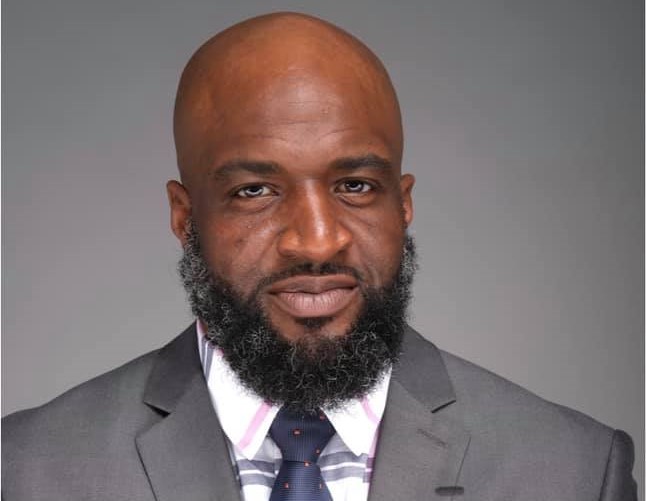
Camden City Schools Offering $10K Bonuses In Attempt to Fill Teacher Slots
March 29, 2023
What Are the Free Speech Rights of a Transphobic School Board Member? Looking at Hunterdon Regional.
March 29, 2023GASWIRTH: This Teacher Sick Leave Bill Hurts Students, Parents, and Taxpayers While Rewarding Union Interests
Dr. Marc Gaswirth, a retired public school administrator, has written extensively for nearly 50 years about public sector bargaining and school human resources.
Can schools continue to provide critical services to students when efforts are underway allegedly to promote a better work-home balance for school employees through a bill that would expand the scope of sick leave? This is not a rhetorical question but a practical one with great significance.
Let’s examine one recent attempt at answering this question.
On March 24, the Assembly Education Committee released by a near unanimous vote A-5060, a bill that would expand the statutory definition of sick leave beyond a school employee’s own injury or illness to also cover a broad range of illnesses and treatments for members of the employee’s immediate family, including mental health and preventive and diagnostic care. The proposal would further allow employees to use sick days, among other reasons, for bereavement leave, attendance at parent-teacher conferences or other school–related functions.
While the committee’s discussion was polite and respectful, with advocates on each side of the issue making their arguments, it appeared a foregone conclusion that this bill would be moving to the next step in the legislative process. Committee members choose not to inquire about several dubious factual claims put forth by the teachers’ union representatives about existing contract provisions providing for paid family illness and other personal leave. They appeared highly affected, however, by the emotional appeal of selective, well-choreographed and orchestrated union representations how school employees were forced to make hard choices between their professional duties and family obligations.
At the hearing, school employees’ needs were the primary focus, student interests were secondary, and parents’ and taxpayers’ concerns were largely ignored.
The bill would give school employees the right to use a current legal grant of at least 10 sick days per year for most personal matters. Since existing law also allows school employees to accumulate unused sick days without limit, this proposal would enable individuals to take more time off with pay, generating high levels of staff absenteeism and thus reducing student-teacher contact time. School districts will have to budget for higher substitute costs. The research also tells us that successful student-teacher interaction only exists when teachers are present on a regular and consistent basis, which leads to greater student achievement.
The political backdrop for this proposal is not surprising. With a pliant legislature and governor more than willing to accommodate unionized school employees’ interests, and with little formidable opposition to counter them, the New Jersey Education Association continues to seek legislative support for goals already attainable at the bargaining table.
Since the Murphy administration took office in 2018, the union has obtained greater job security protections for school employees. Among these are expanded protections for school support staff to challenge all non-renewals regardless of reason and to remain insulated from outsourcing despite dire financial conditions a district might face while a contract is in place. In addition, all school employees are now ensured that they will suffer no adverse employment consequences should a future governor, as Murphy did in March 2020, declare a statewide health emergency.
Using several emotion-laden incidents that teachers were denied paid leave to care for a seriously ill members of the immediate family or were forced to lie to take time off with pay to attend to a family emergency, the union representatives—without evidence—suggested that these were common statewide practice and downplayed the availability of paid personal and family illness days in nearly all local contracts. Since it did not fit the union narrative, the bill’s advocates conveniently avoided any mention of school districts throughout the state that have made special extra-contractual accommodations for employees in these circumstances, or to existing available legal protections.
The bill’s opponents pointed out that the legislation would circumvent an already existing legal mechanism—collective bargaining— and that this would subvert a process which has been in place for nearly 60 years, one that is designed specifically to address issues such as paid time off in extraordinary circumstances. Put somewhat differently, when collective bargaining agreements do not contain enough provisions to satisfy its members, unions using their considerable political clout simply could turn to the legislature to overturn decades of practice, a highly questionable way to make sensible public policy,
The legislation’s supporters made a shameless, emotional appeal to the committee, selecting a few incidents to give the false overall impression of a statewide practice of mean-spirited, vindictive, and insensitive school districts mistreating and disrespecting employees in distress. They also made a curious and self-serving argument—again without evidence—that school employees will always act professionally, honestly and judicially before taking paid time off under this proposed law, an interpretation of which, if true, should place these individuals on an exalted ethical plane ready for sainthood.
Relying on the teacher shortage as another reason to provide expansive paid time off benefits to attract more teacher candidates, the union advocates were misleading the committee members. The proposed law’s immediate benefit would not accrue to new staff but significantly benefit existing school staff with large numbers of accumulated sick days.
If it became law, the bill would enormously increase a school district’s financial exposure. A school district might have to pay a senior teacher with 185 accumulated sick days a full year’s salary and benefits exceeding $100,000 to take care of a sick relative in the immediate family. And, that would not be the entire cost. The district must then hire a teacher to replace the absent teacher at an annual salary and benefits upwards of $75,000. Local districts would find themselves in the same situation as the state with unfunded liabilities not to cover pension costs, but to pay for more broadly defined sick leave benefits.
How disappointing that these legislators see school employees’ interests closely align with students’ interests when the opposite may be the case. How sad it is that we have allowed unions and their political patrons to convince us that the former proposition is true while the latter is staring us in the face.




